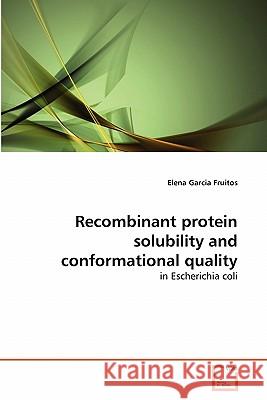Recombinant protein solubility and conformational quality » książka
Recombinant protein solubility and conformational quality
ISBN-13: 9783639312904 / Angielski / Miękka / 2010 / 172 str.
Although many proteins of relevant value are produced in low amounts in their natural sources, under suitable conditions, transgenic cells acting as protein production bio-factories would be expected to act as unlimited and inexpensive source of highly valuable proteins. The production of these recombinant proteins in bacteria often gives rise to the formation of insoluble aggregates known as inclusion bodies (IBs), being its formation an important drawback in protein production processes. A detailed study of both IB and soluble protein in Escherichia coli cells point out that, contrary to what has been generally believed, these aggregates show biological activity and are structures in which native structures coexist with misfolded, beta-sheet-rich proteins. A detailed analysis of protein aggregation, solubility and conformational quality in a set of mutants of the protein quality control show that DnaK play an important role in the regulation of the proteolysis. Altogether has allowed us not only to redefine some concepts such as solubility, aggregation and conformational quality, but also to propose the use of IBs as potential biocatalysts.











